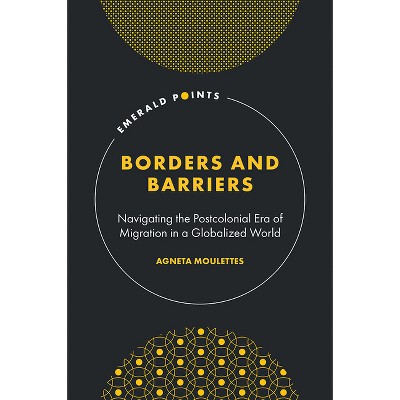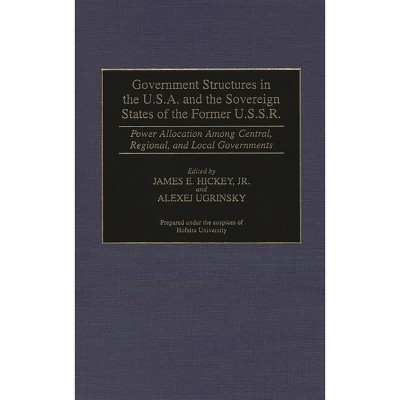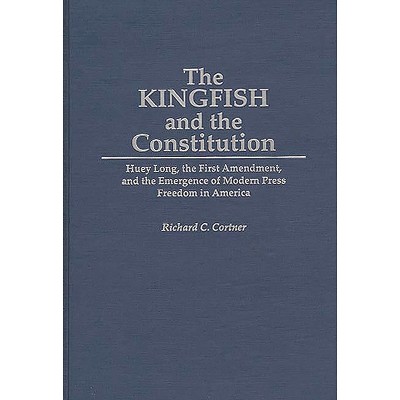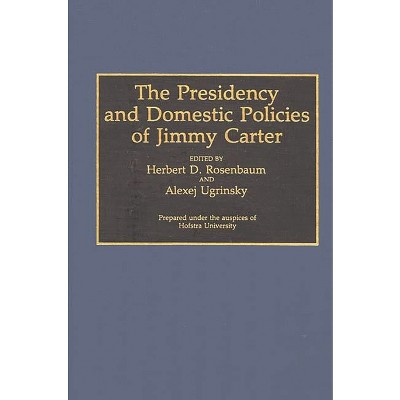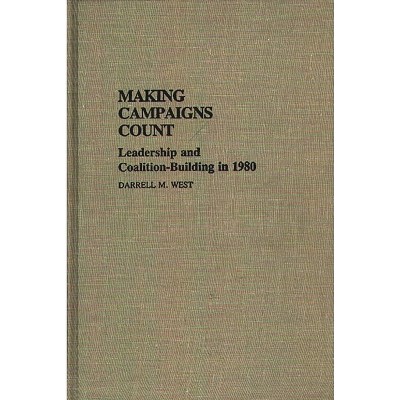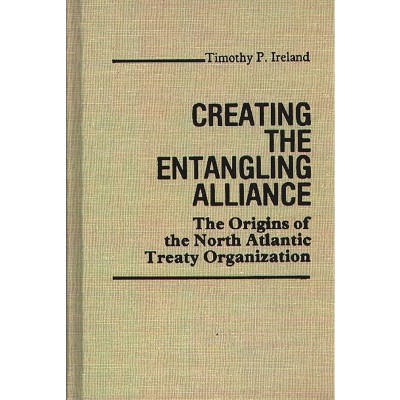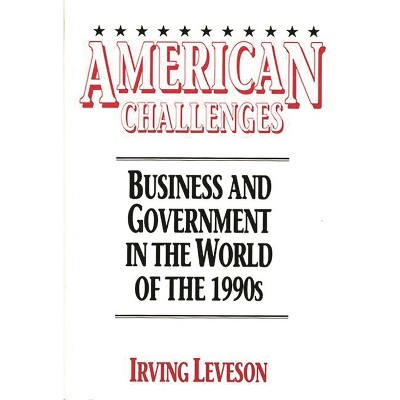Sponsored

Spain and Central America - (Contributions in Political Science) by Robin Rosenberg (Hardcover)
In Stock
Sponsored
About this item
Highlights
- This theoretical and empirical study is the first to examine the connection between the image and substance of Spain's democracy and the country's foreign policy in Central America.
- About the Author: ROBIN L. ROSENBERG is Deputy Executive Director of the North-South Center at the University of Miami, Coral Gables.
- 284 Pages
- History, General
- Series Name: Contributions in Political Science
Description
About the Book
This theoretical and empirical study is the first to examine the connection between the image and substance of Spain's democracy and the country's foreign policy in Central America. Rosenberg establishes a linkage between Spain's political model of democratic transition and Spanish foreign policy on the isthmus, while questioning the validity of the model as a foreign policy instrument. This well-documented case study is intended for political scientists and historians, students, scholars, and policymakers dealing with the complex and difficult relationships between Spain, Europe, and Central America and with major questions about the future of democracy.
The notion of democracy is explored as a historical and contemporary feature of Central American politics since the nineteenth century. Spain's own democratic successes and failures are measured against the abstraction of the political model that the country uses as a foreign policy instrument. The institutional and operational aspects of Spanish foreign policy in Central America are considered against the backdrop of severe strategic, economic, and social crises there. The rhetoric and actions of the Spanish Socialist government are evaluated and considered in relation to foreign policy and democratic development in Central America.
Book Synopsis
This theoretical and empirical study is the first to examine the connection between the image and substance of Spain's democracy and the country's foreign policy in Central America. Rosenberg establishes a linkage between Spain's political model of democratic transition and Spanish foreign policy on the isthmus, while questioning the validity of the model as a foreign policy instrument. This well-documented case study is intended for political scientists and historians, students, scholars, and policymakers dealing with the complex and difficult relationships between Spain, Europe, and Central America and with major questions about the future of democracy.
The notion of democracy is explored as a historical and contemporary feature of Central American politics since the nineteenth century. Spain's own democratic successes and failures are measured against the abstraction of the political model that the country uses as a foreign policy instrument. The institutional and operational aspects of Spanish foreign policy in Central America are considered against the backdrop of severe strategic, economic, and social crises there. The rhetoric and actions of the Spanish Socialist government are evaluated and considered in relation to foreign policy and democratic development in Central America.Review Quotes
"The marriage between theory and case study is particularly commendable. Dr. Rosenberg has tackled an important and complex problem neglected in the literature."-Damian Fernandez Florida International University
?In examining Spanish relations with Central America between 1982 and 1991--the period of Socialist Party (PSOE) dominance in Spain and of Central America's greatest political crisis--Rosenberg book assesses the Spanish government's attempt to utilize its transition from authoritarianism to democracy in the post-Franco era as an instrument of foreign policy. In the longer view, the author is analyzing the latest wrinkle in Spain's historic, continuous effort to wield influence over its former colonies without enjoying the resources of a world power. After reviewing appropriate theory, Rosenberg summarizes Spanish initiatives toward Central America and critiques the validity of the model of democratic transition by uncovering the political, economic, and social shortcomings that flawed the democratization process in Spain itself. These problems, combined with the increasing Europeanization of Spain since its entry into the European Economic Community, acted to limit Spanish influence in a region subject to US hegemony. Based heavily on the Spanish press and news magazines, this book deals cogently with a theme whose importance will only increase in the present decade: the foreign policy dimension of democratization.?-Choice
"In examining Spanish relations with Central America between 1982 and 1991--the period of Socialist Party (PSOE) dominance in Spain and of Central America's greatest political crisis--Rosenberg book assesses the Spanish government's attempt to utilize its transition from authoritarianism to democracy in the post-Franco era as an instrument of foreign policy. In the longer view, the author is analyzing the latest wrinkle in Spain's historic, continuous effort to wield influence over its former colonies without enjoying the resources of a world power. After reviewing appropriate theory, Rosenberg summarizes Spanish initiatives toward Central America and critiques the validity of the model of democratic transition by uncovering the political, economic, and social shortcomings that flawed the democratization process in Spain itself. These problems, combined with the increasing Europeanization of Spain since its entry into the European Economic Community, acted to limit Spanish influence in a region subject to US hegemony. Based heavily on the Spanish press and news magazines, this book deals cogently with a theme whose importance will only increase in the present decade: the foreign policy dimension of democratization."-Choice
About the Author
ROBIN L. ROSENBERG is Deputy Executive Director of the North-South Center at the University of Miami, Coral Gables. He has researched this study at length both in the United States and in Spain. He formerly taught at Troy State University and has served in Spain as Adjunct Professor for several institutions.Shipping details
Return details
Trending Non-Fiction






